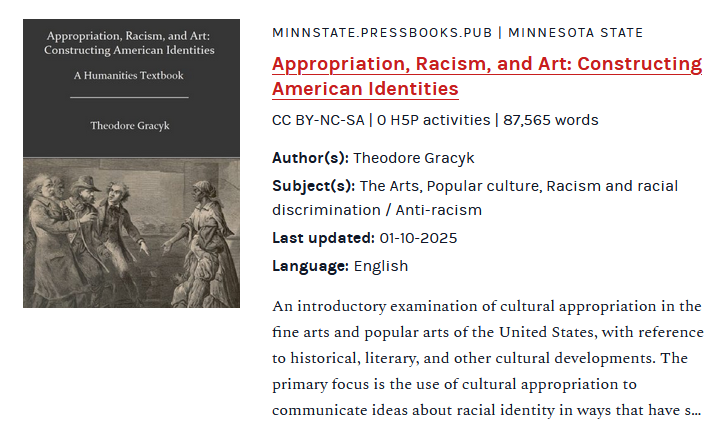Creating an AI Podcast with an OER (Pressbook)
Travis Dolence
Turning Text into Talk
Artificial intelligence tools can help streamline the process of creating educational podcasts from Open Educational Resources (OER). By using AI for tasks like script generation, voice narration, editing, and transcription, instructors can easily transform written content into engaging audio formats. This approach not only enhances accessibility but also offers students a flexible, on-the-go way to interact with course materials.
Example: Creating an AI Podcast with an OER (Pressbook)
Goal
Google’s NotebookLM is a tool that allows educators to transform Open Educational Resources (OER) textbooks into engaging audio content. By leveraging the capabilities of NotebookLM, instructors can easily convert text into a podcast format, providing students with a convenient and accessible way to review material.
How It Was Done
In this example, I used NotebookLM to create a podcast based on an OER Pressbook: Appropriation, Racism, and Art: Constructing American Identities by Theodore Gracyk. The textbook was downloaded from Pressbooks as a PDF and then uploaded to NotebookLM. This process takes several minutes. The podcast was then shared with the author who provided feedback.

Results
-
- Final result: Artistic and Cultural Appropriation Podcast
Potential issues
- The final podcast was submitted to the author for feedback. This review proved highly beneficial in assessing the effectiveness of the podcast as an educational tool.
- Comments from Theodore Gracyk (used with permission):
- “Some parts highly accurate, some parts completely wrong.”
- “As the author, I could tell that it frequently veered from what the book says to stuff you’ll find all over the internet that I purposely excluded from the book (e.g., Huck Finn) and substitutes what’s commonly found on the internet for what I gave as my own contrary account, e.g., gives someone else’s account of Luke Comb’s cover of “Fast Car” rather than what I say — changes the details, too, from working in convenience store to being a factory worker.”
- “Reduces a complex discussion of the Marx Bros. to just Groucho, missing the point.”
- “Seems to just skip all the stuff in the book about the Southwest, the changing border, and Hispanic Americans.”
Best Tools for the Job
- The field of AI-based podcasting apps is evolving rapidly, so listing specific sources may quickly become outdated. It’s best to search for current applications to find the most up-to-date options.

